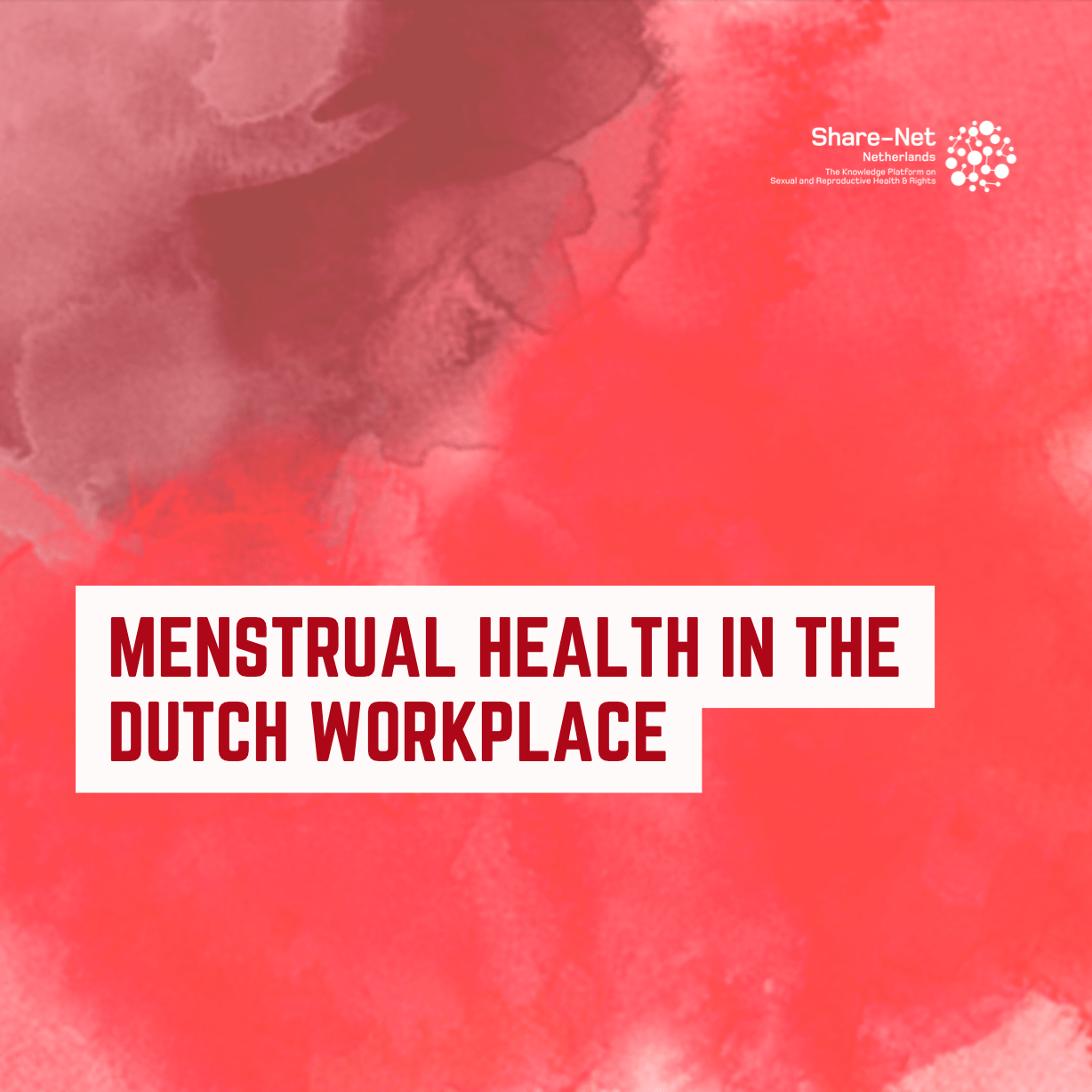Menstrual Health in the Dutch Workplace
The Share-Net Netherlands Community of Practice (CoP) on Menstrual Health (MH) has produced a new report, Menstrual Health in the Dutch Workplace. The Menstrual Health CoP actively contributes to existing efforts to destigmatise menstruation, exploring barriers to appropriate menstrual health and networking experts in the field.
Background
In 2022, based on the existing literature on the topic, the CoP conducted a survey among employees in Dutch workplaces. The purpose of the survey is to bring attention to different experiences of menstrual health in the workplace in the Netherlands and explore what a period- friendly workplace consists of. The results of this informal survey are intended to initiate further research on menstruation and the workplace in the Netherlands and beyond.
The Report
Based on the valuable efforts of various researchers in the MH field, the survey was developed to gain a better understanding of how the issue of menstrual health is perceived in Dutch workplaces. We found the aspects of workplace culture, general attitudes towards menstruation, stigmatisation of menstrual problems and (the lack of) employer interventions particularly relevant and focused on a small sample size to be able to extract as much qualitative data as possible.
The survey questions were designed based on a review of literature, policy briefs and other surveys on the topic of menstrual health in the workplace.
The survey collected data from respondents in their professional capacity by asking them about what facilities are available in their workplace, the general attitudes and workplace culture within their place of work, and what support and policies are available to employees, all in relation to menstrual health in the workplace. Given the taboo nature of the topic, we took care to design the survey in a way that protected the participants’ privacy and gave them the option to skip questions if they felt they were irrelevant. This ensured that none of the participants were exposed to any physical or socio-economic risk.
Overall, the results are based on the responses of 150 participants, the majority of whom (> 60 %) were between 20 and 30 years old. 44 % of them reported to work in a female- dominated and 21 % in a male-dominated workplace. The survey was distributed through various social media platforms and within the internal network of the Community of Practice members. Since the aim was to highlight topics that are important to consider when addressing menstrual health at work, the survey was not spread equally across different workplaces and societal groups, and is therefore not representative in these aspects.
Acknowledgements
This report was developed by Katharina Eggert, Anne- Lotte Beckers and Nicole Moran with the support of the other members of the Share-Net Netherlands Community of Practice on Menstrual Health: Maria Carmen Punzi, Nikki van de Veerdonk, Elly Leemhuis, Victory Nwabu-Ekeoma, Sasa Rácz, Lindsay van Clief, Odette Hekster and Marissa Schut.
Editing and Graphic Design: Victory Nwabu-Ekeoma (Share-Net Netherlands)
This report was commissioned by the Share-Net Netherlands’ Community of Practice on Menstrual Health.
Read the full report here.
